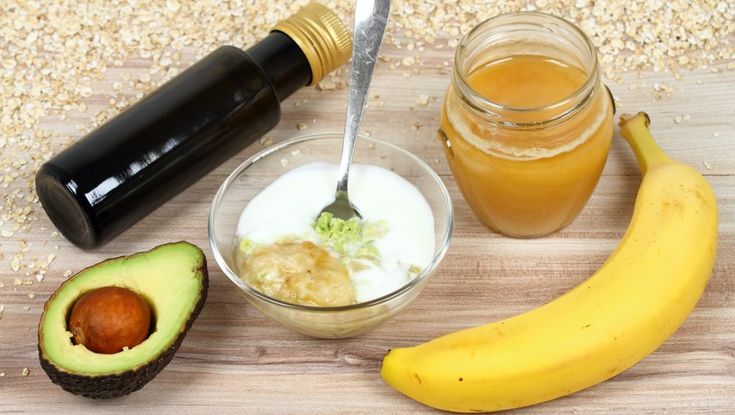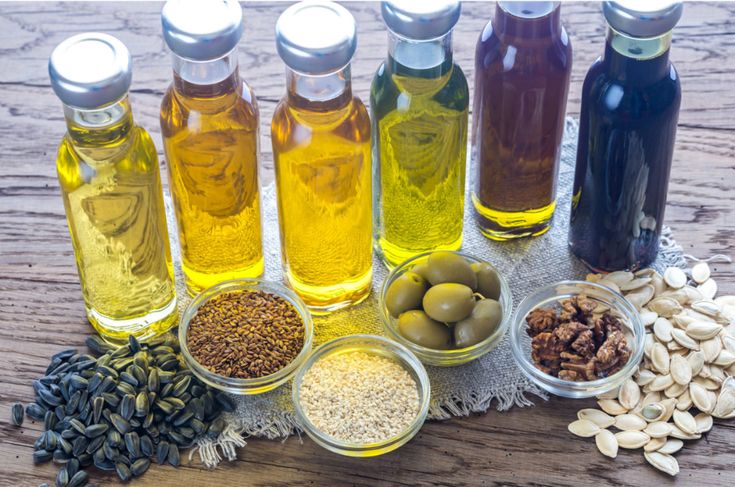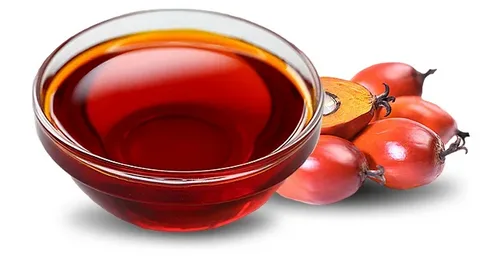In the ever evolving world of skincare, we’re constantly on the lookout for the next miracle ingredient. But what if that game changer has been sitting in your kitchen all along? Let’s dive into the fascinating world of vegetable oils and their potential impact on your skin health.
What Is Vegetable Oil?
Vegetable oil isn’t just for cooking it’s a term that encompasses a variety of plant based oils, each with unique properties. These oils are extracted from seeds, nuts, or fruits of plants, and they’ve been used in skincare for centuries.
Common types of vegetable oils include:
- Sunflower oil
- Coconut oil
- Olive oil
- Grapeseed oil
- Avocado oil
At their core, vegetable oils are composed of fatty acids, vitamins, and other bioactive compounds. This rich chemical profile is what makes them potentially beneficial for skin health.
Historical Tidbit: Ancient Egyptians were among the first to recognize the skincare benefits of vegetable oils, particularly olive oil, which they used for moisturizing and anti aging purposes.
The Good: Potential Benefits for Skin
When it comes to skin health, vegetable oils have a lot to offer. Let’s break down the potential benefits:
Moisturizing Properties
Most vegetable oils are excellent emollients, meaning they can soften and smooth the skin. They create a barrier on the skin’s surface, helping to lock in moisture and prevent water loss.
Vitamin E Content
Many vegetable oils are rich in vitamin E, a powerful antioxidant. This nutrient can help protect your skin from free radical damage, which contributes to premature aging.
| Oil Type | Vitamin E Content (mg/100g) |
| Sunflower | 41.08 |
| Olive | 14.35 |
| Grapeseed | 28.80 |
| Avocado | 21.07 |
Fatty Acid Profile
Vegetable oils contain a mix of fatty acids, including omega 3 and omega 6. These essential (oil) fatty acids play a crucial role in maintaining skin barrier function and reducing inflammation.
Antioxidant Effects
Beyond vitamin E, many vegetable oils contain other antioxidants like polyphenols. These compounds can help protect your skin from environmental stressors and oxidative damage.
Potential for Barrier Repair
Some studies suggest that certain vegetable oils, particularly those high in linoleic acid, may help repair the skin’s natural barrier. This could be particularly beneficial for those with dry or sensitive skin.
The Bad: Drawbacks and Risks
While vegetable oils offer many potential benefits, they’re not without their drawbacks. It’s important to consider these potential risks:
Comedogenic Nature
Some vegetable oils, like coconut oil, can be highly comedogenic, meaning they may clog pores. This can lead to breakouts, especially in those with acne prone skin.
Oxidation Concerns
Vegetable oils can oxidize when exposed to air, light, and heat. This process can lead to the formation of free radicals, which can potentially damage skin cells.
Potential Allergic Reactions
Some people may be allergic to certain vegetable oils. Always perform a patch test before applying a new oil to your face.
Lack of Specialized Skincare Ingredients
While vegetable oils can be beneficial, they lack many of the specialized ingredients found in formulated skincare products, such as peptides or retinoids.
Comparing Vegetable Oils: Not All Are Created Equal
Each vegetable oil has its own unique profile and potential benefits for skin. Let’s compare some popular options:
Sunflower Oil
- Pros: High in vitamin E and linoleic acid
- Cons: Can go rancid quickly if not stored properly
Coconut Oil
- Pros: Antimicrobial properties, deeply moisturizing
- Cons: Highly comedogenic, may cause breakouts
Olive Oil
- Pros: Rich in antioxidants, particularly squalene
- Cons: Heavier texture, may not suit all skin types
Grapeseed Oil
- Pros: Light texture, high in linoleic acid
- Cons: Short shelf life
Avocado Oil
- Pros: High in oleic acid, deeply nourishing
- Cons: May be too heavy for oily skin types
How to Use Vegetable Oil on Skin
If you’re interested in incorporating vegetable oil into your skincare routine, here are some methods to try:
Cleansing Methods
- Oil Cleansing Method: Massage oil into dry skin, then remove with a warm, damp cloth.
- Double Cleansing: Use oil as your first cleanse, followed by a water based cleanser.
Moisturizing Techniques
- Apply a few drops to damp skin after cleansing.
- Mix a drop or two into your regular moisturizer for an extra boost.
DIY Mask Recipes
Hydrating Avocado Mask
- 1/2 ripe avocado
- 1 tbsp honey
- 1 tsp avocado oil
Mash ingredients together and apply to clean skin. Leave on for 15-20 minutes, then rinse off.
Mixing with Other Ingredients
Vegetable oils can be combined with essential oils or other skincare ingredients. Always dilute essential oils properly and patch test before applying to your face.
What the Experts Say
To get a well rounded view, let’s look at what skincare professionals have to say about using vegetable oil on skin:
Dr. Anjali Mahto, Consultant Dermatologist, says:
“While some vegetable oils can be beneficial for certain skin types, they’re not a one size fits all solution. It’s important to consider your individual skin type and concerns when incorporating oils into your routine.”
Recent scientific studies have shown mixed results. A 2018 study published in the International Journal of Molecular Sciences found that some vegetable oils could improve skin barrier function and hydration. However, other studies have highlighted potential risks, particularly for acne prone skin.
Skincare formulators often use vegetable oils in their products, but they’re typically part of a more complex formulation. Cosmetic chemist Perry Romanowski notes:
“Vegetable oils can be great ingredients in skincare, but they’re often more effective when combined with other beneficial ingredients in a properly formulated product.”
Vegetable Oil vs. Specialized Skincare Products
When considering whether to use vegetable oil or stick with specialized skincare products, there are several factors to consider:
Cost Comparison
| Product Type | Average Cost per Ounce |
| Pure Vegetable Oil | $0.50 – $2.00 |
| Basic Moisturizer | $3.00 – $10.00 |
| High End Serum | $15.00 – $50.00+ |
Efficacy Differences
While vegetable oils can be effective, specialized skincare products often contain a mix of ingredients designed to target specific skin concerns. They may include active ingredients like retinoids, peptides, or hyaluronic acid that aren’t found in pure oils.
Formulation Complexities
Skincare products undergo extensive testing for stability, pH balance, and efficacy. They’re formulated to maximize the benefits of each ingredient while minimizing potential irritation.
Who Should (and Shouldn’t) Use Vegetable Oil on Their Skin
Skin Type Considerations
- Dry Skin: May benefit from heavier oils like avocado or coconut
- Oily Skin: Might prefer lighter oils like grapeseed or sunflower
- Normal/Combination Skin: Could use a variety of oils, depending on specific needs
Acne Prone Skin Concerns
Those with acne prone skin should be cautious with vegetable oils. Opt for non comedogenic options like grapeseed or sunflower oil, and always patch test first.
Sensitive Skin Precautions
If you have sensitive skin, introduce oils slowly into your routine. Start with small amounts and watch for any adverse reactions.
Beyond the Face: Other Skin Applications
Vegetable oils aren’t just for facial skincare. They can be used in various ways:
Body Moisturizing
Apply after showering to damp skin for maximum hydration.
Hair and Scalp Treatments
Some oils, like coconut and olive oil, can be used as deep conditioning treatments for hair and scalp.
Nail and Cuticle Care
Massaging oils into nails and cuticles can help keep them moisturized and potentially strengthen nails.
Environmental and Ethical Considerations
When choosing vegetable oils for skincare, it’s worth considering their environmental impact:
Sustainability of Vegetable Oil Production
Some oils, like palm oil, have been associated with deforestation. Look for sustainably sourced options when possible.
Comparing Carbon Footprint to Synthetic Ingredients
While vegetable oils are natural, their production and transportation still have an environmental impact. However, they often have a lower carbon footprint compared to synthetically produced ingredients.
Cruelty Free Aspects
Most vegetable oils are naturally cruelty free, making them a good choice for those concerned about animal testing in cosmetics.
FAQs
Q: Can I use cooking vegetable oil on my skin? A: It’s better to use food grade, cold pressed oils specifically marketed for skincare to ensure purity and quality.
Q: How often should I apply vegetable oil to my skin? A: Start with once daily and adjust based on your skin’s response. Some may benefit from twice daily application.
Q: Can vegetable oils replace sunscreen? A: No, vegetable oils do not provide adequate sun protection. Always use a proper sunscreen.
Q: Are organic vegetable oils better for skin? A: Organic oils may have fewer pesticide residues, but both organic and non organic can be effective for skincare.
Q: Can vegetable oils help with acne scars? A: Some oils, like rosehip, may help improve the appearance of scars, but results vary. Consult a dermatologist for severe scarring.
Conclusion: Is Vegetable Oil Good for Skin?
After diving deep into the world of vegetable oils for skincare, it’s clear that they can offer significant benefits when used correctly. From their moisturizing properties to their rich antioxidant content, vegetable oils have the potential to be a valuable addition to many skincare routines.
However, it’s crucial to remember that not all oils are suitable for all skin types. What works wonders for dry skin might cause breakouts for those with oily or acne prone skin. The key is to understand your skin type and concerns, and choose an oil (or oils) that align with your needs.
Moreover, while vegetable oils can be beneficial, they shouldn’t necessarily replace your entire skincare routine. Many specialized skincare products offer targeted benefits that pure oils can’t match. Instead, consider incorporating vegetable oils as a complement to your existing routine.
Ultimately, the answer to whether vegetable oil is good for skin isn’t a simple yes or no. It depends on the specific oil, your skin type, and how you use it. As with any skincare product, it’s always a good idea to patch test first and introduce new oils gradually into your routine.
Remember, skincare is personal. What works for one person may not work for another. Listen to your skin, be patient, and don’t be afraid to experiment (cautiously) to find what works best for you. And when in doubt, consult with a dermatologist or skincare professional for personalized advice.
The world of natural skincare is vast and exciting, with vegetable oils playing a significant role. Whether you’re looking to simplify your routine, address specific skin concerns, or just curious about natural alternatives, vegetable oils offer a wealth of possibilities to explore.




